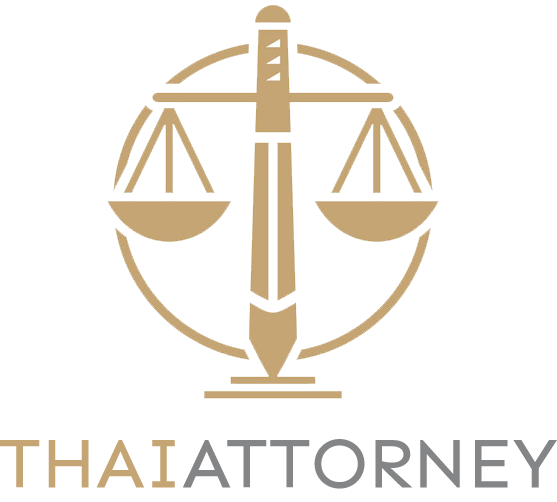Disputes are an inevitable part of personal, commercial, and legal interactions. In Thailand, effective dispute resolution mechanisms play a critical role in maintaining social order, protecting legal rights, and supporting business stability. Whether involving individuals, corporations, or government entities, resolving conflicts efficiently ensures that relationships, property, and contractual obligations are preserved. Understanding the importance of dispute resolution in Thailand is essential for both Thai residents and foreign nationals conducting business or living in the country.
Legal Framework for Dispute Resolution in Thailand
Thailand provides a structured legal framework for resolving disputes through civil, criminal, and alternative methods. The Civil and Commercial Code (CCC) governs civil disputes, including contractual, property, and family law issues, while the Penal Code addresses criminal offenses. In addition, specialized laws regulate commercial, labor, intellectual property, and consumer disputes.
Beyond courts, Thailand also recognizes alternative dispute resolution (ADR) mechanisms such as mediation, negotiation, and arbitration. ADR is often encouraged to reduce court congestion, expedite resolution, and preserve relationships between disputing parties.
Types of Disputes Commonly Encountered in Thailand
Disputes in Thailand arise in various contexts, including:
-
Commercial Disputes: Conflicts between businesses over contracts, payment obligations, intellectual property, or partnership agreements.
-
Labor Disputes: Disagreements between employers and employees regarding wages, benefits, workplace conditions, or wrongful termination.
-
Property Disputes: Issues over land ownership, leases, mortgages, or construction projects.
-
Family Disputes: Conflicts involving divorce, child custody, inheritance, or marital property.
-
Consumer Disputes: Complaints regarding product quality, services, or contractual misrepresentations.
The ability to address these disputes efficiently is essential for maintaining legal order, protecting parties’ rights, and fostering trust in the legal system.
Importance of Dispute Resolution in Thailand
1. Protection of Legal Rights
Dispute resolution ensures that the rights of individuals, businesses, and organizations are protected under Thai law. When conflicts arise, legal mechanisms provide a structured approach for enforcing contracts, claiming damages, or asserting property rights.
Without effective dispute resolution, parties may be left vulnerable to unfair practices, loss of property, or exploitation. The legal system provides a safeguard that balances power between disputing parties and promotes justice.
2. Promotion of Business Stability
Thailand is a major hub for domestic and international commerce. Effective dispute resolution mechanisms are crucial for maintaining investor confidence and business stability.
Businesses require predictable legal processes to enforce contracts, protect intellectual property, and resolve commercial disagreements. Quick and reliable dispute resolution minimizes financial losses, protects corporate reputation, and encourages foreign investment.
3. Cost and Time Efficiency
Courts in Thailand can be congested, and litigation may be time-consuming and expensive. Alternative dispute resolution methods, such as mediation and arbitration, provide a faster, more cost-effective way to settle disputes.
ADR allows parties to avoid lengthy court procedures while reaching mutually acceptable solutions. This efficiency is particularly important for businesses that need to maintain operational continuity and for families seeking swift resolution in sensitive matters such as custody or divorce.
4. Preservation of Relationships
In many disputes, particularly business and family conflicts, maintaining relationships is critical. Court proceedings can be adversarial and damaging, potentially harming long-term relationships.
Mediation and negotiation, common forms of ADR in Thailand, encourage collaboration and compromise. By fostering constructive dialogue, these methods help preserve professional partnerships, family bonds, and social networks.
5. Flexibility and Customization
Dispute resolution mechanisms in Thailand, particularly ADR, offer flexibility in procedures, timing, and outcomes. Parties can choose mediators, select venues, and tailor solutions to meet their specific needs.
This flexibility allows disputing parties to address the unique aspects of their conflict while avoiding rigid court procedures. Tailored solutions can be more practical, realistic, and satisfactory than a strictly legal judgment.
6. Legal Certainty and Enforcement
Resolving disputes through formal channels in Thailand ensures that outcomes are legally binding and enforceable. Court judgments, arbitral awards, and registered settlement agreements carry legal weight and can be enforced against non-compliant parties.
This legal certainty is essential in upholding the rule of law, providing recourse for aggrieved parties, and deterring future violations. Businesses and individuals can operate with confidence knowing that agreements and judgments will be respected.
7. Reduction of Social Conflict
Efficient dispute resolution contributes to social stability by preventing minor conflicts from escalating into major disputes. When individuals and businesses have access to fair and timely resolution mechanisms, tensions are minimized, and social harmony is maintained.
This is particularly important in labor disputes, property conflicts, and community disagreements, where unresolved issues can lead to unrest or prolonged litigation.
8. Encouragement of Compliance and Accountability
Knowing that disputes can be legally challenged encourages parties to comply with agreements, contracts, and legal obligations. Effective dispute resolution mechanisms in Thailand promote accountability, ethical business practices, and responsible personal conduct.
This encourages a culture of trust, integrity, and lawfulness across various sectors, benefiting the broader economy and society.
Alternative Dispute Resolution in Thailand
Alternative dispute resolution (ADR) plays an increasingly important role in Thailand’s legal landscape. ADR includes methods such as:
-
Mediation: A neutral mediator helps parties communicate, identify issues, and reach a mutually acceptable solution.
-
Arbitration: An impartial arbitrator or panel reviews evidence and makes a binding decision, often faster and more confidential than court litigation.
-
Negotiation: Parties communicate directly to reach a settlement without third-party intervention.
ADR is particularly valued in commercial disputes, international business dealings, and sensitive family matters. It offers flexibility, confidentiality, and faster resolution compared to formal court proceedings.
Role of Legal Professionals
Effective dispute resolution in Thailand often requires the guidance of legal professionals. Lawyers, mediators, and arbitrators provide expertise in:
-
Understanding the legal framework
-
Drafting settlement agreements or arbitration clauses
-
Representing clients in court or arbitration
-
Advising on risk management and strategic decisions
Professional guidance ensures that disputes are handled lawfully, efficiently, and with the best possible outcome for the client.
Conclusion
Dispute resolution in Thailand is essential for protecting rights, maintaining business stability, fostering social harmony, and ensuring legal certainty. Whether through litigation or alternative dispute resolution, efficient and fair handling of disputes prevents financial loss, preserves relationships, and encourages accountability.
In a dynamic social and commercial environment, the ability to resolve conflicts effectively is a cornerstone of Thailand’s legal system and economic development. Individuals, businesses, and government entities benefit from structured and reliable mechanisms that promote justice, fairness, and long-term stability.
By understanding the importance of dispute resolution and utilizing available legal and alternative avenues, parties in Thailand can address conflicts efficiently, protect their interests, and contribute to a stable and prosperous society.

